What are PCB Manufacturers?
PCB (Printed Circuit Board) manufacturers are companies that specialize in the production of printed circuit boards. These boards are essential components in electronic devices, serving as the foundation for interconnecting electronic components. PCB manufacturers play a crucial role in the electronics industry by providing high-quality, reliable, and cost-effective PCBs for various applications.
Types of PCB Manufacturers
There are several types of PCB manufacturers, each with their own specialties and target markets:
-
Prototype PCB Manufacturers: These manufacturers focus on producing small quantities of PCBs for prototyping and testing purposes. They often have quick turnaround times and offer design support to help customers refine their PCB designs.
-
High-Volume PCB Manufacturers: These manufacturers are equipped to handle large-scale production of PCBs. They have automated assembly lines and can produce thousands of boards per day, making them suitable for mass production of electronic devices.
-
Flexible PCB Manufacturers: Flexible PCBs are designed to bend and flex, allowing for more compact and lightweight electronic devices. Flexible PCB manufacturers specialize in producing these types of boards, which require specific materials and manufacturing processes.
-
High-Density Interconnect (HDI) PCB Manufacturers: HDI PCBs have a higher density of interconnections, allowing for smaller and more complex electronic devices. HDI PCB manufacturers have advanced manufacturing capabilities to produce these highly precise and dense boards.
The Importance of Choosing the Right PCB Manufacturer
Selecting the right PCB manufacturer is crucial for ensuring the success of your electronic product. Here are some key factors to consider when choosing a PCB manufacturer:
Quality and Reliability
The quality and reliability of your PCBs directly impact the performance and longevity of your electronic device. Look for a PCB manufacturer that adheres to strict quality control standards and has a proven track record of producing high-quality boards. They should have certifications such as ISO 9001 and IPC (Association Connecting Electronics Industries) standards.
Manufacturing Capabilities
Consider the manufacturing capabilities of the PCB manufacturer to ensure they can meet your specific requirements. This includes the types of PCBs they can produce (e.g., single-sided, double-sided, multilayer), the materials they work with (e.g., FR-4, polyimide, high-frequency laminates), and the minimum feature sizes they can achieve.
Turnaround Time
The turnaround time for PCB manufacturing can vary depending on the complexity of the design and the manufacturer’s capacity. If you have tight deadlines, look for a manufacturer that offers quick-turn services and can deliver your PCBs within your required timeframe.
Cost
Cost is always a consideration when selecting a PCB manufacturer. However, it’s important to balance cost with quality and reliability. While it may be tempting to choose the lowest-cost option, keep in mind that lower prices may come at the expense of quality or service. Look for a manufacturer that offers competitive pricing without compromising on quality.
Customer Support and Communication
Effective communication and responsive customer support are essential when working with a PCB manufacturer. Look for a manufacturer that has a dedicated support team, responds promptly to your inquiries, and provides clear and transparent communication throughout the manufacturing process.
The PCB Manufacturing Process
Understanding the PCB manufacturing process can help you better communicate your requirements to the manufacturer and ensure a smooth production process. Here’s a brief overview of the key steps involved in PCB manufacturing:
-
PCB Design: The process begins with the creation of the PCB design using specialized software. The design includes the placement of components, routing of traces, and definition of the board’s dimensions and layer stackup.
-
Fabrication: Once the design is finalized, the fabrication process begins. This involves creating the copper traces on the board, drilling holes for components, and applying solder mask and silkscreen.
-
Assembly: After fabrication, the components are placed on the board and soldered into place. This can be done manually for low-volume production or using automated assembly lines for high-volume production.
-
Testing and Inspection: The assembled PCBs undergo rigorous testing and inspection to ensure they meet the required specifications and are free from defects. This may include visual inspection, automated optical inspection (AOI), and functional testing.
-
Packaging and Shipping: Once the PCBs have passed the testing and inspection phase, they are packaged and shipped to the customer.

Benefits of Working with Online PCB Manufacturers
In recent years, there has been a growing trend of working with online PCB manufacturers. These manufacturers offer a convenient and streamlined process for ordering and managing PCB production. Here are some benefits of working with online PCB manufacturers:
Ease of Ordering
Online PCB manufacturers often have user-friendly websites that allow you to upload your PCB design files, specify your requirements, and receive an instant quote. This eliminates the need for back-and-forth communication and simplifies the ordering process.
Design Support and Feedback
Many online PCB manufacturers offer design support and feedback to help you optimize your PCB design. They can provide recommendations on material selection, layer stackup, and design rules to ensure your PCB meets manufacturability and reliability standards.
Faster Turnaround Times
Online PCB manufacturers often have streamlined processes and automated systems that enable faster turnaround times. They can typically provide quicker lead times compared to traditional PCB manufacturers, especially for prototype and low-volume production.
Competitive Pricing
Online PCB manufacturers often have lower overhead costs compared to traditional manufacturers, allowing them to offer competitive pricing. They may also provide volume discounts and special offers, making it more cost-effective to work with them.
Global Accessibility
With online PCB manufacturers, you can access a global network of suppliers and manufacturers. This allows you to compare prices, capabilities, and lead times from manufacturers around the world, giving you more options and flexibility in sourcing your PCBs.
Choosing the Right Online PCB Manufacturer
When selecting an online PCB manufacturer, consider the following factors:
- Reputation and Reviews: Research the manufacturer’s reputation and read reviews from previous customers to gauge their reliability and quality of service.
- Manufacturing Capabilities: Ensure the manufacturer can accommodate your specific PCB requirements, such as board thickness, layer count, and special materials.
- Certifications and Standards: Look for manufacturers that hold relevant certifications and adhere to industry standards, such as ISO 9001, IPC, and UL.
- Customer Support: Choose a manufacturer that offers responsive customer support and has a dedicated team to assist you throughout the manufacturing process.
- Pricing and Lead Times: Compare pricing and lead times from multiple manufacturers to find the best balance between cost and delivery speed.
Frequently Asked Questions (FAQ)
-
What is the minimum order quantity (MOQ) for PCB manufacturing?
The minimum order quantity varies among PCB manufacturers. Some may offer low MOQs for prototype and low-volume production, while others may require higher quantities for cost-effective manufacturing. It’s best to check with the specific manufacturer for their MOQ requirements. -
How long does it take to manufacture PCBs?
The lead time for PCB manufacturing depends on various factors, such as the complexity of the design, the manufacturer’s capacity, and the chosen service level. Prototype and quick-turn services can have lead times as short as 24-48 hours, while standard production lead times can range from several days to a few weeks. -
Can I get a prototype PCB before mass production?
Yes, most PCB manufacturers offer prototype services to allow you to test and validate your design before proceeding with mass production. Prototype PCBs are typically manufactured in small quantities and may have slightly different specifications compared to the final production boards. -
What files do I need to provide for PCB manufacturing?
To manufacture your PCBs, you typically need to provide the following files: - Gerber files: These are the industry-standard files that describe the PCB’s copper layers, solder mask, and silkscreen.
- Drill files: These files specify the location, size, and type of holes required for component placement.
- Bill of Materials (BOM): This is a list of all the components used on the PCB, including their quantities and specifications.
-
Assembly drawings: These drawings provide instructions for component placement and orientation on the PCB.
-
What should I do if I encounter issues with the manufactured PCBs?
If you encounter any issues with the manufactured PCBs, such as defects or non-conformance to specifications, contact the PCB manufacturer’s customer support immediately. Most reputable manufacturers have a quality assurance process and will work with you to resolve any issues and provide necessary replacements or rework.
Conclusion
PCB manufacturers play a vital role in the electronics industry by providing the foundation for interconnecting electronic components. Choosing the right PCB manufacturer is crucial for ensuring the quality, reliability, and success of your electronic product. When selecting a PCB manufacturer, consider factors such as quality, manufacturing capabilities, turnaround time, cost, and customer support.
Online PCB manufacturers offer a convenient and streamlined process for ordering and managing PCB production. They provide benefits such as ease of ordering, design support, faster turnaround times, competitive pricing, and global accessibility. However, it’s important to carefully evaluate and choose the right online PCB manufacturer based on their reputation, capabilities, certifications, and customer support.
By understanding the PCB manufacturing process and working closely with a reputable PCB manufacturer, you can ensure the successful production of high-quality PCBs for your electronic devices.
| Factor | Consideration |
|---|---|
| Quality and Reliability | – Adherence to quality control standards (ISO 9001, IPC) |
| – Proven track record of producing high-quality boards | |
| Manufacturing Capabilities | – Types of PCBs (single-sided, double-sided, multilayer) |
| – Materials (FR-4, polyimide, high-frequency laminates) | |
| – Minimum feature sizes | |
| Turnaround Time | – Quick-turn services for tight deadlines |
| – Standard production lead times | |
| Cost | – Competitive pricing without compromising quality |
| – Balance between cost and other factors | |
| Customer Support | – Dedicated support team |
| – Prompt response to inquiries | |
| – Clear and transparent communication |
By considering these factors and carefully evaluating potential PCB manufacturers, you can make an informed decision and select the right partner for your PCB manufacturing needs.
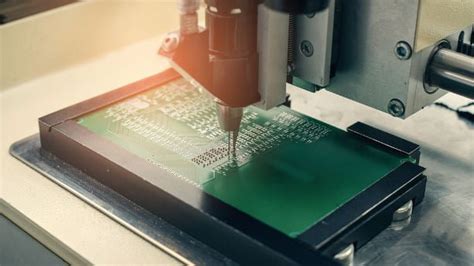
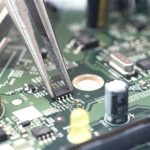
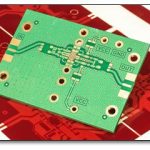
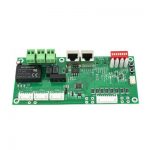
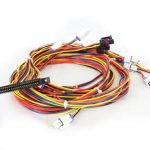
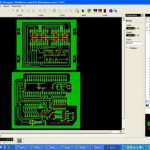
Leave a Reply